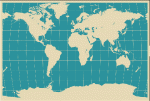Web catalog
Most read
Most read last 7 days
Most Discussed
Top rated
Statistics
- Total registered users: 10059
- Total articles: 23656
- Total comments: 2087
- Last entry: Kebo presenting evidence that Izetbegovic brought mujahideen to Bosnia
- Last update: 11.01.2019. 23:44
The road to the Bosniak nation
Written 27.11.2009. 13:13
A Catholic-Orthodox-Muslim Bosnian nation could never have been idyllic. In the Bosnian Pashaluk, the Ottomans infused the indigenous islamised population with the idea of statehood (Turkish-Oriental variant) and helped shape a new, fiercely loyal ethnicity, which is a unique case in all the European lands under their occupation. Christian populations always harboured fears of dominant Islam, and the fact that some Franciscans wholeheartedly embraced the idea of the Bosniak nation remained a historical oddity. Fears of religious communities increased at the time of the Ottoman withdrawal. Islam, which previously threatened Croatia's existence in particular, was now on the defensive on all fronts and could not expect any mercy from the Christians. The Ottoman Empire came under attack from Christians whose minds were full of grim memories (real and imagined) of islamic yoke. Inside the Empire, in the Bosnian Pashaluk, a socio-religious rebellion against the Turks, ie. Bosnian Muslims was an expected byproduct. An ecumenical Bosniak nation could not have been anything but a stillbirth.
By accepting Islam, the Bosniaks entered a new culture and gained Sultan's protection, but on the other hand accepted a great risk, a risk which they were not aware of at the time. That risk consists of living surrounded by unrelenting enemies, and those enemies are neighbours of another denomination who could not accept the Muslim ascendancy, nor forget what it entailed. The risk was that our "Turks" frequently got punished for everything the Ottomans had (or hadn't) done in these regions.
























































 Kontaktirajte nas
Kontaktirajte nas
No comments